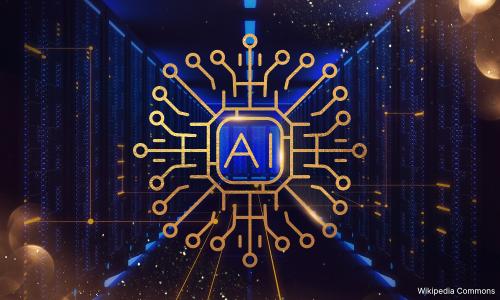LETTER | Ethic guidelines in integrating AI to higher education
LETTER | Artificial intelligence (AI) has been progressively adopted by educational institutions in recent years to improve administrative, instructional, and learning processes.
Higher education is at the vanguard of this technological evolution as AI has emerged as a transformative force that has the potential to revolutionise various aspects of society.
The incorporation of AI in higher education presents promising potential, including more creative research capabilities, streamlined administrative processes, and individualised learning experiences.
On the other hand, while education experiences a digital revolution, it also presents moral questions, data privacy issues, and the requirement for extensive regulations to control AI applications.
We have seen how generative AI can assist with writing assignments, exam questions, grant proposals, and presentations. Moreover, an increasing number of journals are already permitting the use of text created by AI, indicating that academia is warming to the idea of having AI co-writing publications.
Thus, it is important for academics to employ AI carefully. Even Malaysian academics anticipate a change in their job through more effective and economical methods although they only employ generative AI in a limited capacity.
However, because laws and consensus about AI ethics are still in their infancy, the boundaries of this assistance remain vague. For this reason, generative AI may help educators as well as students in terms of assessment.
The use of generative AI in academic work appears to have many advantages but knowing when to use it and when not to will be challenging.
The issue is that excitement about generative AI as a productivity tool gets in the way of things scholars ought to be working on. The success of generative AI in increasing productivity could lead to its indiscriminate application.
To guarantee the ethical and fair application of these technologies, regulations and standards controlling the use of AI in higher education are crucial.
The core tenets of the policies are privacy, security, equity, and transparency. To promote openness, institutions must pledge to give concise justifications for AI-driven decision-making procedures.
More importantly, strong data privacy safeguards must also be in place to protect sensitive information and guarantee adherence to applicable privacy laws.
Educational institutions have to make sure AI applications adhere to accepted ethical norms. A continual review, monitoring, assessment, and modification of AI systems to conform to changing ethical norms and new issues should also be emphasised in ethics.
AI training for academic staff is essential to creating a technologically savvy and flexible higher education environment. Depending on the institutions, faculty members should have access to extensive professional development programmes that accommodate a range of skill levels and disciplinary backgrounds. Educators can effectively incorporate AI tools into their research and teaching by participating in workshops, seminars, and cooperative projects that provide practical experiences.
Moreover, continuous learning should be made available, such as access to online courses or specific training modules to keep academic professionals up to date with the quickly changing field of AI.
Nonetheless, the most important thing is to emphasise ethical issues surrounding AI applications.
To put it briefly, the successful integration of AI technology into higher education requires balancing their benefits and quality viewpoints.
Taking into account these quality perspectives will help ensure that AI is used responsibly and effectively in higher education, maximising its benefits while reducing any risks or ethical dilemmas.
Keeping up with the quick advancements in AI technology requires constant evaluation and modification of these efforts.
In the end, it is about utilising AI to its full potential in higher education while maintaining the greatest moral standards and protecting the rights of all parties concerned.
The views expressed here are those of the author/contributor and do not necessarily represent the views of Malaysiakini.
RM12.50 / month
- Unlimited access to award-winning journalism
- Comment and share your opinions on all our articles
- Gift interesting stories to your friends
- Tax deductable
